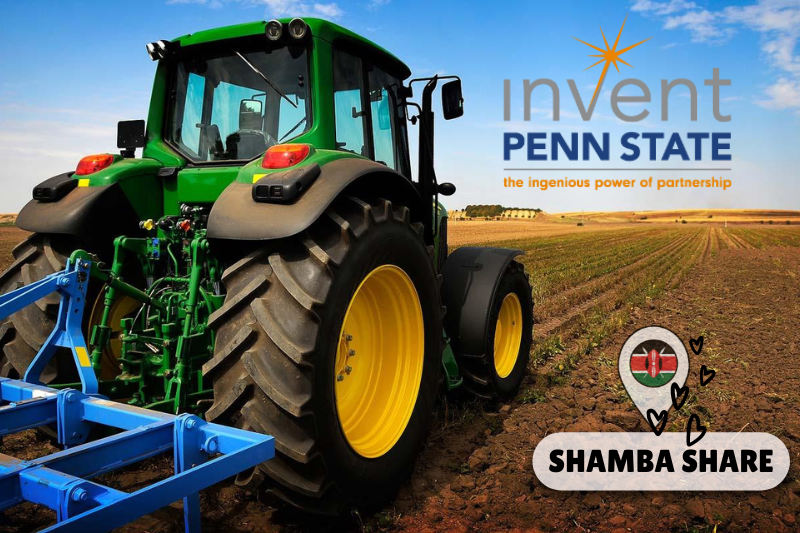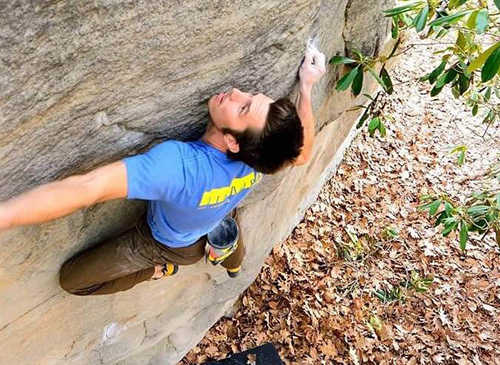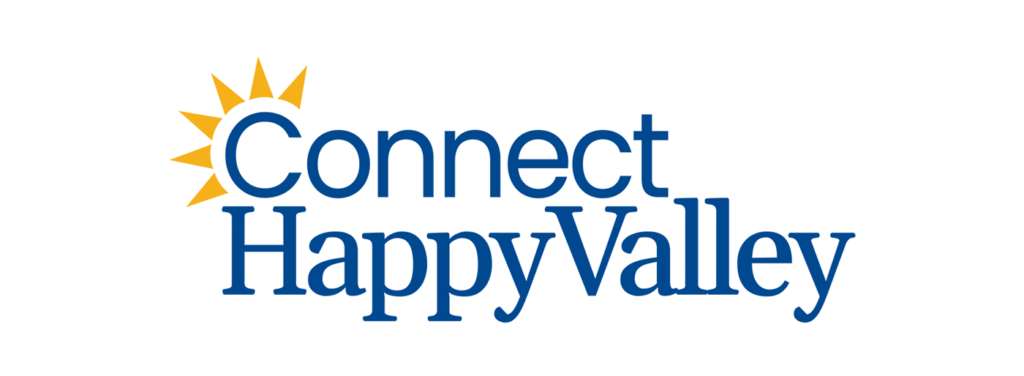by Holly Riddle

In our last installment of our series on covering new Happy Valley startups recently recognized at Penn State Startup Week powered by PNC, we spoke with Samuel Marshall, co-founder of Shamba Share, alongside Jaiden Asch. The two participated in the 2024 Invent Penn State Inc.U Competition, where they won the $2,500 People’s Choice Award. Shamba Share is part of the Humanitarian Engineering and Social Entrepreneurship program and aims to make an impact for small farmers in Kenya.
Tell us about your and Asch’s backgrounds and how it led to creating Shamba Share?
[Asch] and I are both finance majors and both very interested in social impact and social entrepreneurship… We were looking for a business that would have the most impact.
We settled on Kenya, because Kenya just as a society is incredibly entrepreneurial in nature, and has a lot of opportunity for new businesses and social entrepreneurship… and we were interested in agriculture because agriculture is incredibly important for Kenyan society. It contributes heavily to Kenya’s GDP, as well as heavy employment, especially in rural areas. A lot of people’s lives in general are dependent on agriculture. With that being said, the majority of these farmers live on less than $2 a day, which is below the international poverty line.
With that, we wanted to find a sustainable business that would positively impact these farmers. With our initial research in the space, we noticed there’s a lack of access to important farming equipment, whether that be irrigation or tractors or other kinds of important machinery that can help a farmer get higher productivity or higher profitability. The main reason for that, talking with farmers, is that it’s just too expensive. Farm equipment is way too expensive to purchase outright. We also noticed there wasn’t any formal sharing platform where you could rent agricultural equipment for a fraction of the full upfront cost. With that, we wanted to develop one of the first peer-to-peer sharing platforms, so that these farmers could get access to the agricultural equipment that they need.
And so what’s Shamba Share’s current state at the moment? What are you working on right now?
We’ve gone through extensive customer discovery through the past eight months — a lot of Zoom calls with farmers, agribusinesses, different community leaders and organizations in Kenya. We’ve developed an MVP and business model that we believe would be implementable at this stage. We’ll actually be traveling to Kenya this [month] to meet with all the stakeholders that we’ve had conversations with over the past eight months and continue working with them.
Once the final product is out in the world, how do you envision it working?
Shamba Share is envisioned as a great connector of farmers [and them] being able to get access to the equipment they need through a rental process. So, farmers will be able to, if they have equipment, post it on Shamba Share and then other farmers who need the equipment can rent it.
Our main goal is to provide the trust and the security measurements along the way, to facilitate rentals. Let’s say if I want to rent out a piece of equipment, but to a complete stranger, what are the measurements in place to facilitate trust and security? The background checks, the verification, the insurance on the equipment?
Our goal is to facilitate these transactions between farmers, so [farmers] can access [equipment] and farmers that own equipment can get returns from renting it out.
Tell us about the Inc.U experience. What was that like?
Going into this, I had no idea how strong the entrepreneurial ecosystem was at Penn State. It was a really incredible experience. For Inc.U, we were looking for funding to help develop more of the backend and make our MVP a more viable and usable product, and the experience was just really amazing. The amount of support and opportunity, the amount of Penn State-hosted pitch competitions, the amount of student-sponsored pitch competitions… It was really incredible to see the amount of support Penn State has for entrepreneurs, especially in college.
Do you feel like you would have been able to grow this startup to this point without Penn State?
The amount of support and opportunity, the amount of Penn State-hosted pitch competitions, the amount of student-sponsored pitch competitions… It was really incredible to see the amount of support Penn State has for entrepreneurs, especially in college.
Overall, we’re definitely not taking for granted the Penn State ecosystem.
I would say probably not. The support that Penn State has, was really incredible to see… I had no idea about the amount of support… and even the community support… Another resource I do want to touch on is the support from the Humanitarian Engineering and Social Entrepreneurship program, which has provided amazing resources, led by Dr. [John Gershenson]…Overall, we’re definitely not taking for granted the Penn State ecosystem.






